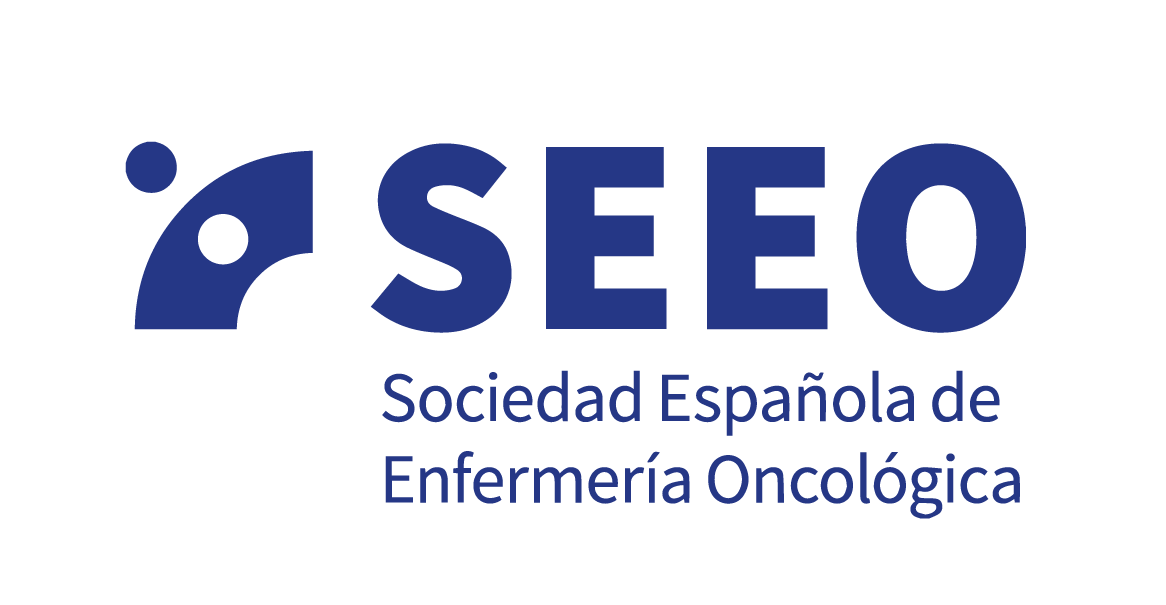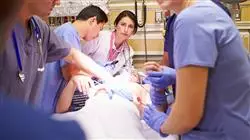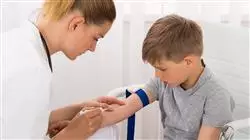University certificate
Scientific endorser

Scientific endorser

The world's largest faculty of nursing”
Introduction to the Program
Master the latest advances in Pediatric Oncology Nursing and improve comprehensive care for children with cancer and their families”

Nursing is a fundamental pillar in the care of pediatric oncology patients, as it involves key assistive, organizational, and emotional processes essential to their recovery. The constant development of more effective and less invasive treatments has transformed pediatric oncology practice, requiring nurses to undergo specialized training. Comprehensive care focuses not only on clinical procedures but also on family support and mitigating the emotional impact of the disease.
In light of this, nurses must update their competencies to offer care based on the latest scientific evidence. In response to this need, this Masters Degree has been designed to provide advanced knowledge in the treatment and care of children with cancer. This thorough program covers everything from clinical approaches to psychosocial support, preparing specialists to face the challenges of this discipline.
The syllabus offers a detailed overview of the most common pediatric oncology pathologies, including innovative diagnostic techniques and advanced therapeutic strategies. It also includes specific modules on pain management, the side effects of treatments, and palliative care. By the end of the program, the nursing professional will be equipped to provide excellent care tailored to the individual needs of each patient.
This 100% online program has been designed so nurses can train without interfering with their professional or personal activities. All content is accessible 24/7 from any device with an internet connection, making it easy to organize learning. Additionally, the Relearning method is implemented, optimizing the retention of key knowledge through strategic repetition.
You will develop skills in the safe administration of oncological treatments, such as chemotherapy, radiotherapy, and immunotherapy”
This Masters Degree in Pediatric Oncology Nursing contains the most complete and up-to-date scientific program on the market. The most important features include:
- The development of practical cases presented by experts in Pediatric Oncology Nursing
- The graphic, schematic, and practical contents with which they are created, provide scientific and practical information on the disciplines that are essential for professional practice
- Practical exercises where the self-assessment process can be carried out to improve learning
- Its special emphasis on innovative methodologies in Pediatric Oncology Nursing
- Theoretical lessons, questions to the expert, debate forums on controversial topics, and individual reflection assignments
- Content that is accessible from any fixed or portable device with an internet connection
You will master the most innovative techniques in the management of childhood cancer and provide excellent care based on the latest scientific evidence”
The program includes faculty members from the field of Pediatric Oncology Nursing, who bring their professional experience to this program, along with renowned specialists from leading societies and prestigious universities.
The multimedia content, developed with the latest educational technology, will provide the professional with situated and contextual learning, i.e., a simulated environment that will provide an immersive learning experience designed to prepare for real-life situations.
This program is designed around Problem-Based Learning, whereby the student must try to solve the different professional practice situations that arise throughout the program. For this purpose, the professional will be assisted by an innovative interactive video system created by renowned and experienced experts.

You will apply infection prevention and control protocols in immunocompromised patients, reducing risks associated with oncological therapy”
Why study at TECH?
TECH is the world’s largest online university. With an impressive catalog of more than 14,000 university programs available in 11 languages, it is positioned as a leader in employability, with a 99% job placement rate. In addition, it relies on an enormous faculty of more than 6,000 professors of the highest international renown.

Study at the world's largest online university and guarantee your professional success. The future starts at TECH”
The world’s best online university according to FORBES
The prestigious Forbes magazine, specialized in business and finance, has highlighted TECH as “the world's best online university” This is what they have recently stated in an article in their digital edition in which they echo the success story of this institution, “thanks to the academic offer it provides, the selection of its teaching staff, and an innovative learning method aimed at educating the professionals of the future”
A revolutionary study method, a cutting-edge faculty and a practical focus: the key to TECH's success.
The most complete study plans on the university scene
TECH offers the most complete study plans on the university scene, with syllabuses that cover fundamental concepts and, at the same time, the main scientific advances in their specific scientific areas. In addition, these programs are continuously being updated to guarantee students the academic vanguard and the most in-demand professional skills. In this way, the university's qualifications provide its graduates with a significant advantage to propel their careers to success.
TECH offers the most comprehensive and intensive study plans on the current university scene.
A world-class teaching staff
TECH's teaching staff is made up of more than 6,000 professors with the highest international recognition. Professors, researchers and top executives of multinational companies, including Isaiah Covington, performance coach of the Boston Celtics; Magda Romanska, principal investigator at Harvard MetaLAB; Ignacio Wistumba, chairman of the department of translational molecular pathology at MD Anderson Cancer Center; and D.W. Pine, creative director of TIME magazine, among others.
Internationally renowned experts, specialized in different branches of Health, Technology, Communication and Business, form part of the TECH faculty.
A unique learning method
TECH is the first university to use Relearning in all its programs. It is the best online learning methodology, accredited with international teaching quality certifications, provided by prestigious educational agencies. In addition, this disruptive educational model is complemented with the “Case Method”, thereby setting up a unique online teaching strategy. Innovative teaching resources are also implemented, including detailed videos, infographics and interactive summaries.
TECH combines Relearning and the Case Method in all its university programs to guarantee excellent theoretical and practical learning, studying whenever and wherever you want.
The world's largest online university
TECH is the world’s largest online university. We are the largest educational institution, with the best and widest online educational catalog, one hundred percent online and covering the vast majority of areas of knowledge. We offer a large selection of our own degrees and accredited online undergraduate and postgraduate degrees. In total, more than 14,000 university degrees, in eleven different languages, make us the largest educational largest in the world.
TECH has the world's most extensive catalog of academic and official programs, available in more than 11 languages.
Google Premier Partner
The American technology giant has awarded TECH the Google Google Premier Partner badge. This award, which is only available to 3% of the world's companies, highlights the efficient, flexible and tailored experience that this university provides to students. The recognition as a Google Premier Partner not only accredits the maximum rigor, performance and investment in TECH's digital infrastructures, but also places this university as one of the world's leading technology companies.
Google has positioned TECH in the top 3% of the world's most important technology companies by awarding it its Google Premier Partner badge.
The official online university of the NBA
TECH is the official online university of the NBA. Thanks to our agreement with the biggest league in basketball, we offer our students exclusive university programs, as well as a wide variety of educational resources focused on the business of the league and other areas of the sports industry. Each program is made up of a uniquely designed syllabus and features exceptional guest hosts: professionals with a distinguished sports background who will offer their expertise on the most relevant topics.
TECH has been selected by the NBA, the world's top basketball league, as its official online university.
The top-rated university by its students
Students have positioned TECH as the world's top-rated university on the main review websites, with a highest rating of 4.9 out of 5, obtained from more than 1,000 reviews. These results consolidate TECH as the benchmark university institution at an international level, reflecting the excellence and positive impact of its educational model.” reflecting the excellence and positive impact of its educational model.”
TECH is the world’s top-rated university by its students.
Leaders in employability
TECH has managed to become the leading university in employability. 99% of its students obtain jobs in the academic field they have studied, within one year of completing any of the university's programs. A similar number achieve immediate career enhancement. All this thanks to a study methodology that bases its effectiveness on the acquisition of practical skills, which are absolutely necessary for professional development.
99% of TECH graduates find a job within a year of completing their studies.
Master's Degree in Pediatric Oncology Nursing
Every three minutes, a child dies in the world from cancer-related diseases, according to statistics from the International Childhood Cancer Organization (CCI). This means that shortly after you finish reading this text, a new name will be added to the list of deceased. There is a need for highly dedicated and skilled personnel to address this global issue. Committed to the cause, TECH Global University presents the Master's Degree in Pediatric Oncology Nursing, an opportunity to deeply explore the theoretical background and clinical care required for the various common neoplastic conditions in the pediatric population. The opportunity to apply your skills will be provided through an innovative, fully online learning system led by a highly qualified faculty. At TECH, we use the latest digital content technology to bring the hospital experience in real environments to your screen, with results that will be highly satisfying. We know that nursing is the bastion of hope; take the opportunity to bring out the best in yourself with this postgraduate program.
Pediatric oncology: a motivating plus to your career
Although the issue of childhood cancer evokes somber emotions due to the gravity of the problem worldwide, advancements in medical sciences offer promising signs in this area. A publication by the National Cancer Institute in September 2021 discusses the FDA's approval of NTRK inhibitors: a gene that turns healthy cells into cancerous ones. This treatment, while applicable to adults, is focused on pediatric patients. In this context, the future of combating oncological diseases in children looks encouraging. You too can contribute to this gradual change by studying our Master's Degree. The program consists of ten modules in which you will learn everything from pediatric care for oncohematology to the use of ICT (Information and Communication Technologies) for multidisciplinary support, all in an immersive environment that will show you why we are global leaders in distance higher education.







